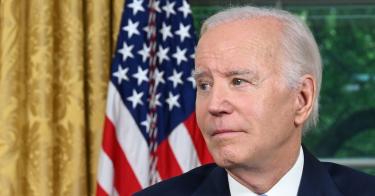History was almost made last month. But instead of becoming the first U.S. president to visit a Pacific Island country, President Joe Biden canceled his trip to Papua New Guinea to return to Washington and focus on debt ceiling negotiations.
Although those negotiations are undoubtedly important, with Communist China aggressively seeking strategic inroads in the Pacific in its new Cold War with the United States, the trip cancellation carries consequences.
It’s fair to ask why the U.S. president should be spending his time in a remote region that has attracted minimal attention in years past. It was only earlier this year that the U.S. announced the opening of embassies in the nearby Solomon Islands and Tonga, though neither featured a U.S. ambassador. However, the actions of China—and more recently, India—explain why the canceled trip matters.
In 2021, China signed a security pact with the Solomon Islands that could open the door for its People’s Liberation Army to establish a military base in the region. The agreement contains a provision for the Solomon Islands’ prime minister to request soldiers during times of unrest. This means the People’s Liberation Army can station soldiers and dock warships in a strategically significant region that sits astride critical international shipping lanes in the Pacific.
During his trip, Biden was supposed to sign a defense pact in Papua New Guinea that grants the U.S. military access to its airfields and ports. In the president’s absence, Secretary of State Antony Blinken had to ink the new agreement.
For a country like Papua New Guinea, hosting a U.S. president is a historic opportunity. The canceled trip not only disappointed the host country but also dented U.S. credibility among other critical Pacific Island nations.
The cancellation plays into China’s own propaganda deployed against the United States in the region. China commonly boasts its diplomatic and economic engagement in Southeast Asia and the Pacific, arguing the U.S. is a distant “nonresident” power in the Pacific. Chinese officials show up in the region; American officials don’t.
Indian Prime Minister Narendra Modi, however, did visit Papua New Guinea at the same time Biden was supposed to. On a trip that was planned long before Biden’s own, Modi received a very warm welcome, including a 19-gun salute and honor guard.
Additionally, Modi met with leaders of other Pacific Island countries during the third India-Pacific Islands Cooperation Summit and announced a 12-point plan to deepen cooperation in the region. During the summit, Papua New Guinea Prime Minister James Marape claimed that Pacific Island countries “are victims of a global powerplay” while India is “the leader of the Global South.”
To be a leader in the Pacific, the U.S. must be present. Biden should reschedule his trip to the nation and add stops in the Federated States of Micronesia, the Marshall Islands, and Palau, which all enjoy special Compact of Free Association agreements with the United States. These island nations are critical enough for China’s leader, Communist Party Chairman Xi Jinping, to visit twice in the past 10 years. Biden visiting them would demonstrate a strong U.S. commitment to an increasingly important region.
With the U.S. and China locked in a new Cold War, it is undeniable that China’s growing regional footprint has given new strategic relevance to the Pacific Islands. However, U.S. engagement with the region cannot be dominated exclusively by conversations about the China threat. Rather, the U.S. must deepen partnerships with countries independently of China. It cannot be a one-way relationship. The U.S. needs to cater to the needs of the developing countries it seeks to court strategically, including through infrastructure investments, post-secondary educational programs, and health care cooperation.
Biden’s last-minute cancellation of his trip was a missed opportunity to bolster U.S. relations with strategically important Pacific Island nations. As debt ceiling negotiations come to an end, the Biden administration should reschedule his trip and expand his itinerary to retake the initiative and position America as a leader in the region.
This piece originally appeared in The Daily Signal




